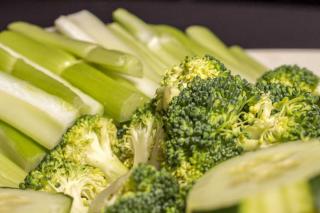

A human body in good health means that all the systems that compose it function properly.
These systems are supported by various organs, each of which fulfills one or more particular tasks. Major systems are the respiratory system, the circulatory system, the urinary system, the reproductive system and many more…
For humans, the reproductive system is supported by one organ which plays a primordial role: the prostate. Its main function is to produce fluids and ensure they flow well. It produces a liquid that composes 20% of the sperm ejaculated by a man.
It may happen, for around 10 to 20% of all men aged 50 or more, that this organ doesn’t any more perform its task if it has been targeted by an infection or an inflammation. This is when the term infectious prostatitis is applicable. It is a disease that, although not deadly, still can be quite a handicap for the patient because of the pain and hassles it induces.
How should one proceed? Can it be alleviated with plants?
Infectious prostatitis is the inflammation of the prostate gland. The development and evolution of this inflammation can happen very fast.
The prostate swells, gets irritated, and leads to several dysfunctions, especially as regards urination and libido.
The symptoms of infectious prostatitis generally are:
The actual causes of infectious prostatitis aren’t yet clearly established, but certain health professionals state that dietary and environmental factors may lead to prostatitis.
Others believe that an underlying condition in the nervous or immune systems might cause an inflammation of the prostate glands.
For still others, sometimes a wound can lead to the prostate developing an inflammation.
In all situations, it is imperative that a proper, health lifestyle be lived to reduce the risk of being exposed to this inflammation.
The many health benefits of plants are often unknown to patients who often head directly to the doctor’s as soon as symptoms appear. Actually, it is very possible to treat yourself with plants when suffering from infectious prostatitis.

> Broccoli, cauliflower and spinach.
> Apples, olives, black cherries, berries, citrus and grapes greatly contribute to reducing prostatitis symptoms, because these fruits contain high levels of quercetin, a plant-produced anti-inflammatory.
As for other plants, squash seeds have shown they were able to restore hormonal imbalances thanks to their activity on muscles of the bladder area.
Dwarf palm or saw palmetto when used in preparations help alleviate pain, whereas poplar regulates the prostate and goldenrod regulates kidney activity.
Professionals also recommend stinging nettle to help treat urinary system dysfunction: difficult urinating, low urine flow. The roots and leaves of nettles combined with Opuntia flowers and smallflower hairy willowherb enhance micturition.
A blend of prairie flowers also can have positive effects on the prostate.
For effectiveness, it is best to use these plants according to the following guidelines:
Plants alleviate the prostate and its disorders only when the infection is at the beginning. It’s imperative to consult a specialist if disorders persist. However, it’s possible to reduce exposure to prostatitis thanks to a healthy lifestyle.
For that: